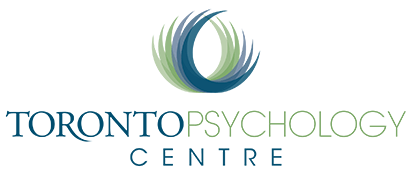Comprehensive Assessments for Autism Spectrum Disorder Across the Lifespan
Achieve insight and strategic guidance.
Toronto Psychology Centre offers customized, evidence-based assessments for Autism Spectrum Disorder (ASD). Our assessments are conducted by psychologists who have extensive training to ensure you are getting the right guidance. We are neurodivergent-affirming and strive to provide you with a low stress experience. We value collaboration and work with all age groups including children, adolescents, and adults.
ASD is a neurodevelopmental and spectrum condition that presents in individuals differently. While there is a growing focus on autism in children, it is essential to recognize that autism continues throughout the lifespan. Autism can look very different in adults than it does in children, especially when someone has spent their lifetime trying to hide (or mask) their “non-neurotypical” traits. Many adults who were not diagnosed have spent their lives feeling as though they were “different”. Over the years, you may have been misdiagnosed with other conditions or had your concerns dismissed by professionals who told you that you did not seem autistic. More adults are being diagnosed with autism, including females and BIPOC individuals. There is much more awareness and knowledge of ASD compared to a decade ago.
We provide comprehensive assessments to address the whole person. Our collaborative approach embraces and values your experiences. We strive to make your assessment a positive experience.
- What is Autism Spectrum Disorder?
- Diagnosing Autism Spectrum Disorder
- Accommodations for Autism Spectrum Disorder
What is Autism Spectrum Disorder?
Autism Spectrum Disorder is a complex neurodevelopment disorder typified by repetitive and restricted patterns of behaviour as well as differences with social communication and interaction that make it challenging to interact with neurotypical people. The term “spectrum” refers to the fact that people with Autism present with a wide array of symptoms, skills and levels of disability and functioning.
Several features are part of the autistic experience:
- Distress over transitions and/or changes in routine
- Echoed, scripted, and/or repetitive language
- Deeply passionate interests
- Over- or under-sensitivity to sensory input (e.g., textures, noises, smells)
- Stimming for self-regulation or expressing excitement
- Different ways of communicating and relating to neurotypical individuals
- Difficulty developing and maintaining friendships
- Differences in understanding and/or expressing emotions
Diagnosing Autism Spectrum Disorder
Embarking on the assessment process can seem overwhelming for parents of a child who is experiencing significant developmental delays, including social, behavioural, and communication difficulties.
The importance of early identification and support for individuals with Autism Spectrum Disorder (ASD) has been well established. Due to the increase in prevalence and advances in diagnostic measures, more children are being diagnosed at earlier ages, which helps facilitate access to the necessary services and support.
In order to achieve the most accurate diagnosis, we take a comprehensive apporache to assessment that includes standardized assessments, interviews from parents, teachers, and other professionals, and observations. The Autism Diagnostic Observation Schedule, Second Edition (ADOS-2) is part of the assessment process and is considered the gold standard assessment measure for Autism Spectrum Disorder. It is a semi-structured, standardized assessment that provides a context in which an individual’s communication, social interactions, and other behaviours relevant to Autism Spectrum Disorder are observed. The ADOS-2 is not meant to be used as a standalone measure and the results are always considered within the context of all the clinical information.
When assessing adults, the ADOS-2 may be used and inform the assessment; however, a more nuanced assessment is needed that involves more in-depth clinical interviewing in order to differentiate from other diagnoses that may present similarly to Autism Spectrum Disorder.
In particular, it is important to consider co-occurring disorders when assessing for Autism Spectrum Disorder. For example, other disorders sometimes diagnosed alongside Autism Spectrum Disorder may include Learning Disorders, Attention Deficit/Hyperactivity Disorder (ADHD), Tic Disorders (e.g., Tourette’s Disorder) as well as Depressive and Anxiety (e.g., social anxiety) Disorders. Care is taken with each assessment through a comprehensive approach to diagnosis, with an emphasis on clear and targeted recommendations designed to support you.
Diagnosis can be the first step to understanding your own neurodiversity. Getting a correct diagnosis of ASD as an adult can help a person understand past difficulties, identify their strengths, and work on any current areas of struggle. Learning about your own neurodivergence (whether you are autistic or not) can also help you to advocate for yourself and create an environment suited to your unique needs and preferences.
Whether a parent is seeking an assessment for their child, or an adult would like to understand themselves better, we aim to empower you.
Accommodations for Autism Spectrum Disorder
The most important accommodation is to support an autistic individual to be their most authentic selves while giving them the tools to navigate a neurotypical world. Individuals with Autism Spectrum Disorder can have a wide range of learning needs that are unique to each person. The right accommodations can be helpful in mitigating learning difficulties and overcoming barriers to learning. Accommodations help address a range of issues such as physical, sensory and/or cognitive challenges. Physical challenges may involve limitations with movement or motor skills. Sensory challenges may include vision, hearing, touch, and smell. Cognitive challenges may involve attention, memory, task completion, reading, writing, and spelling.
Examples of different accommodations to support an individual with Autism Spectrum Disorder include:
- Access to a computer and assistive technology
- Assistance from a note taker
- Behavioural support strategies
- Clearly established and ordered routines
- Planning and practicing of communication strategies and social routines
- Planning for transitions
- Sensory considerations
- Structured learning environment
- Use of audio and visual aides
- Use of a quiet area
Many people with Autism Spectrum Disorder can be successful in school, postsecondary education, and in their career, when provided with support. Adaptation and accommodation measures are often necessary to support their needs and improve the quality of their lives.
Please reach out to us to book an assessment for Autism Spectrum Disorder.

